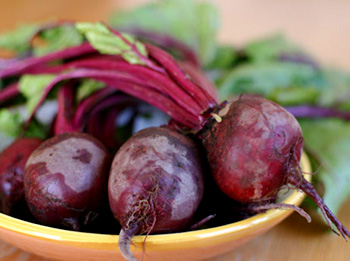 Sodium Chloride, the chemical name for common salt, contains 39 per cent
of sodium, an element which never occurs in free form in nature. It is
found in an associated form with many minerals particularly in plentiful
amounts with chlorine. It acts with other electrolytes, mainly
potassium, in the intracellular fluid, to control the osmotic pressure
and maintain an appropriate water balance within the body. Sodium can
help prevent catarrh. It promotes a clear brain, resulting in a better
disposition and less mental exhaustion. Vegetable foods rich in sodium
are celery, cucumbers, beet-tops, cabbage, lettuce, watermelon, lemons,
oranges, grapefruit, corn, lady`s fingers, apple, berries, pears,
squash, pumpkin, peaches, lentils, almonds and walnuts. Animal food
sources include lean beef, kidney, shell fish, bacon and cheese.
Deficiencies of sodium are, however, rare and may be caused by excessive
sweating, prolonged use of diuretics, or chronic Diarrhoea. Deficiency may lead to muscular weakness, heat exhaustion, nausea, mental apathy and respiratory failure.
Sodium Chloride, the chemical name for common salt, contains 39 per cent
of sodium, an element which never occurs in free form in nature. It is
found in an associated form with many minerals particularly in plentiful
amounts with chlorine. It acts with other electrolytes, mainly
potassium, in the intracellular fluid, to control the osmotic pressure
and maintain an appropriate water balance within the body. Sodium can
help prevent catarrh. It promotes a clear brain, resulting in a better
disposition and less mental exhaustion. Vegetable foods rich in sodium
are celery, cucumbers, beet-tops, cabbage, lettuce, watermelon, lemons,
oranges, grapefruit, corn, lady`s fingers, apple, berries, pears,
squash, pumpkin, peaches, lentils, almonds and walnuts. Animal food
sources include lean beef, kidney, shell fish, bacon and cheese.
Deficiencies of sodium are, however, rare and may be caused by excessive
sweating, prolonged use of diuretics, or chronic Diarrhoea. Deficiency may lead to muscular weakness, heat exhaustion, nausea, mental apathy and respiratory failure.
Thursday, June 14, 2012
Sodium
 Sodium Chloride, the chemical name for common salt, contains 39 per cent
of sodium, an element which never occurs in free form in nature. It is
found in an associated form with many minerals particularly in plentiful
amounts with chlorine. It acts with other electrolytes, mainly
potassium, in the intracellular fluid, to control the osmotic pressure
and maintain an appropriate water balance within the body. Sodium can
help prevent catarrh. It promotes a clear brain, resulting in a better
disposition and less mental exhaustion. Vegetable foods rich in sodium
are celery, cucumbers, beet-tops, cabbage, lettuce, watermelon, lemons,
oranges, grapefruit, corn, lady`s fingers, apple, berries, pears,
squash, pumpkin, peaches, lentils, almonds and walnuts. Animal food
sources include lean beef, kidney, shell fish, bacon and cheese.
Deficiencies of sodium are, however, rare and may be caused by excessive
sweating, prolonged use of diuretics, or chronic Diarrhoea. Deficiency may lead to muscular weakness, heat exhaustion, nausea, mental apathy and respiratory failure.
Sodium Chloride, the chemical name for common salt, contains 39 per cent
of sodium, an element which never occurs in free form in nature. It is
found in an associated form with many minerals particularly in plentiful
amounts with chlorine. It acts with other electrolytes, mainly
potassium, in the intracellular fluid, to control the osmotic pressure
and maintain an appropriate water balance within the body. Sodium can
help prevent catarrh. It promotes a clear brain, resulting in a better
disposition and less mental exhaustion. Vegetable foods rich in sodium
are celery, cucumbers, beet-tops, cabbage, lettuce, watermelon, lemons,
oranges, grapefruit, corn, lady`s fingers, apple, berries, pears,
squash, pumpkin, peaches, lentils, almonds and walnuts. Animal food
sources include lean beef, kidney, shell fish, bacon and cheese.
Deficiencies of sodium are, however, rare and may be caused by excessive
sweating, prolonged use of diuretics, or chronic Diarrhoea. Deficiency may lead to muscular weakness, heat exhaustion, nausea, mental apathy and respiratory failure.
Labels:
Minerals
Subscribe to:
Post Comments (Atom)
No comments:
Post a Comment